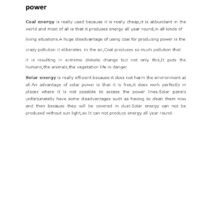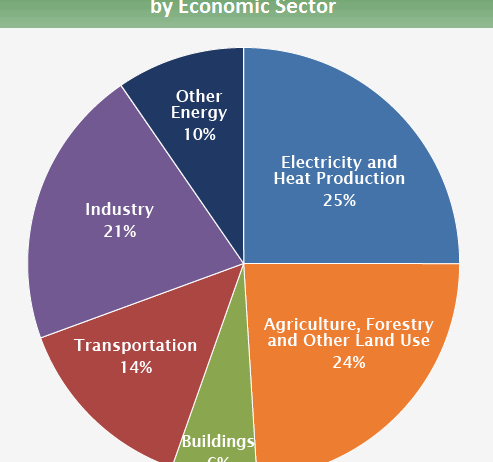Climate change is fundamentally altering the landscape of energy supply, with particular emphasis on the oil industry. The intricate relationship between a warming world and energy dynamics necessitates a thorough exploration of how environmental shifts affect oil extraction, production, and consumption. This discourse will delve into various components, including the science of climate change, the nuances of oil supply chains, geopolitical ramifications, and the prospect of sustainable alternatives.
To comprehend the full impact of climate change on oil supply, one must first grasp the phenomenon of climate change itself. Scientific consensus posits that anthropogenic activities, primarily the combustion of fossil fuels, have significantly elevated greenhouse gas (GHG) concentrations in the atmosphere. This burgeoning concentration enhances the greenhouse effect, leading to global warming. Consequently, variations in temperature, precipitation patterns, and extreme weather events have become increasingly common, all of which directly influence the oil sector.
As the climate crisis intensifies, oil reserves located in vulnerable environments face unprecedented threats. For instance, Arctic drilling necessitates extreme measures and poses potential risks associated with thawing permafrost, which can lead to oil spills and environmental degradation. Furthermore, the increase in severe weather events—hurricanes, floods, and heatwaves—can disrupt extraction operations, damage infrastructure, and hinder transportation routes critical for oil distribution. Such disruptions not only induce cost escalations but also catalyze debates regarding the viability of continued investment in fossil fuel infrastructure.
The supply chain of oil is multifaceted, characterized by numerous stages from extraction to end-user delivery. Each phase of this chain is susceptible to climate-related impacts. For instance, production sites often require significant amounts of water, a resource that may become increasingly scarce in certain regions affected by prolonged droughts. Such water shortages can have deleterious effects on the refining process and, by extension, on overall oil output.
This intersection of water scarcity and oil production is particularly pertinent in the United States, where fracking—a method dependent on substantial water usage—has surged in popularity. As drought conditions prevail across key fracking regions, oil producers may find themselves confronting significant operational challenges. The ensuing necessity to divert resources towards water acquisition can further undermine profit margins, entrapping the industry in a vicious cycle of environmental exploitation and economic instability.
In addition to immediate supply chain concerns, climate change engenders a paradigm shift in public perception and policy formulation regarding energy consumption. Increasingly, societies are recognizing the urgent need to transition towards more sustainable energy systems. Governments worldwide are implementing stringent regulations aimed at reducing GHG emissions, directly impacting the oil industry’s profitability and attractiveness as an investment avenue. These policies may include carbon pricing mechanisms, caps on emissions, and incentives for renewable energy development, effectively altering the trajectory of global energy markets.
Geopolitically, the dynamic between oil-rich nations and the international community is evolving. Countries reliant on oil exports are acutely aware of the impending obsolescence of fossil fuels as the global economy pivots towards renewable energy sources. This apprehension is amplifying tensions in regions where oil underpins national economies. As the world strives to meet climate goals articulated by international agreements such as the Paris Accord, the sustainability of oil-dependent economies is brought into sharp focus. The ongoing transition necessitates diversification and technological innovation to mitigate economic disruptions and foster resilience in the face of climate change.
The prospect of renewable energy alternatives emerges as a crucial aspect of this discussion. Wind, solar, and hydroelectric power offer viable pathways towards reducing the global dependence on oil. However, the transition to these sources is fraught with challenges, including technological limitations, infrastructure inadequacies, and intermittent energy supply. Building a robust renewable energy infrastructure demands substantial investment and foresight, requiring collaboration among governments, private enterprises, and civil societies.
Moreover, the integration of renewable energy systems into existing grids presents additional complexities. Aging infrastructure, often designed with fossil fuel supremacy in mind, necessitates modernization to accommodate decentralized energy sources. This transition, while inherently beneficial in the long term, will likely encounter resistance from segments of the oil industry, emphasizing the need for a holistic and collaborative approach to energy reform.
In conclusion, the ramifications of climate change on the oil sector are profound and multifaceted. As the world grapples with escalating temperatures and shifting weather patterns, the viability of oil production and distribution faces significant challenges. Supply chain disruptions, economic ramifications, and geopolitical tensions are intricately linked to the evolving landscape of energy supply. The urgent call for renewable alternatives underscores the necessity for immediate action and strategic planning to forge a sustainable energy future. Stakeholders must engage in a constructive dialogue to navigate this tumultuous transition, recognizing that the path forward is not solely about mitigating negative impacts but innovating and evolving toward a resilient and sustainable global energy paradigm.






